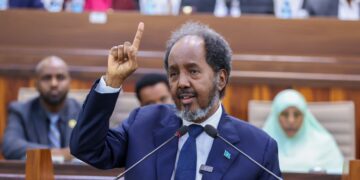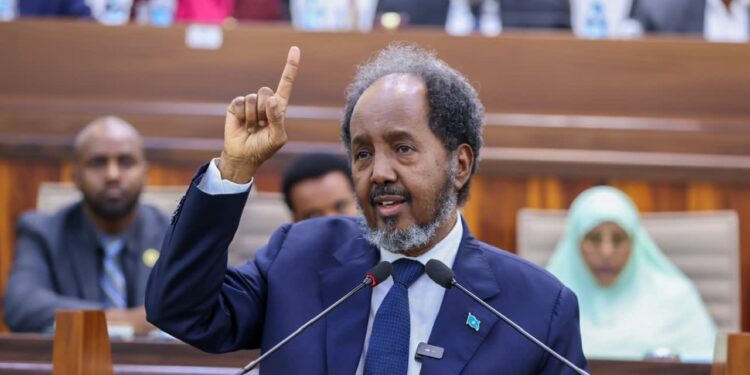By Enyichukwu Enemanna
The Ministry of Foreign Affairs in Somalia on Thursday marked the country’s official assumption of the United Nations Security Council seat with a celebratory event at its headquarters in Mogadishu.
Somalia secured its seat on the Security Council in June last year with 179 votes in the UN General Assembly, returning to the council after more than a century. It last served on the council in the early 1970s.
Representing East Africa in an uncontested bid, Somalia joins Denmark, Greece, Pakistan, and Panama as new non-permanent members, succeeding Ecuador, Japan, Malta, Mozambique, and Switzerland.
Like other members, the UN seat grants Somalia a pivotal role on the 15-member council, influencing decisions on international peace and security, sanctions, peacekeeping missions, and the use of force.
It also provides an opportunity to advocate for issues pertinent to Africa and the Horn of Africa region, including conflict resolution, counter-terrorism, and post-conflict reconstruction.
The ceremony marking this milestone in Mogadishu was attended by Foreign Minister Ambassador Ahmed Mohamud Fiqi, the Permanent Secretary, directors, ministry staff, and other government officials.
Speaking at the event, Minister Fiqi highlighted the historic significance of the achievement, emphasising the collaborative efforts that made it possible and outlining Somalia’s priority agenda during its tenure.
The minister expressed deep gratitude to Somalia’s leadership, led by the President, and acknowledged the contributions of the nation’s delegations to the African Union in Addis Ababa and the United Nations in New York.
He also commended the ministry’s diplomats and staff for their dedication to advancing Somalia’s global standing.
Somali President Hassan Sheikh Mohamud, in a televised speech, praised the achievement as a sign of Somalia’s progress and commitment to global peace efforts.
The Security Council, with its five permanent and ten non-permanent members, is tasked with maintaining peace and security among nations.




































